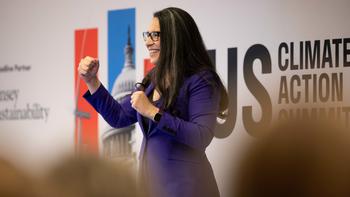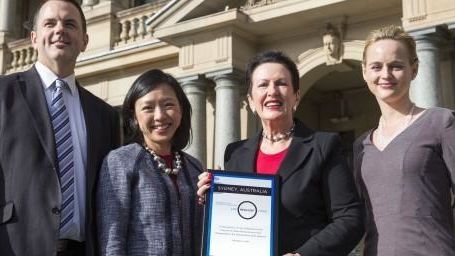
Image: Florence Nightingale (credit: Wikimedia commons)
The World Health Organization (WHO) declared 2020 to be the International Year of the Nurse and the Midwife. The designation was in recognition that strong nursing and midwifery workforces are key to the achievement of universal health coverage. With more than 50 percent of the global health workforce being nurses and midwives, WHO acknowledges that enabling nurses and midwives to work to their full potential is one of the most important things we can do to improve health globally.
Yet, in many countries and contexts, nurses and midwives are undervalued and unable to fulfill their true potential. The aim for 2020 was to ensure that all nurses and midwives operate in an environment where they are safe from harm, respected by each other, by medical colleagues and community members, have access to a functioning health-care service and where their work is integrated with other health-care professionals.
This year, 2020, was selected as it coincides with the 200th anniversary of the birth of Florence Nightingale. Florence Nightingale has been described as a caring and trailblazing British nurse, statistician, social reformer and leader of improved health care who is widely regarded as the founder of modern nursing.
To celebrate the anniversary and contribution of nurses and midwives towards global health, hundreds of local and international events were enthusiastically planned for 2020.
No one envisaged the global carnage caused by the COVID-19 pandemic that has sidelined the celebrations. Instead nurses and midwives have been afforded the opportunity to lead and showcase our true worth more than ever before – selflessness instead of commemoration.
Florence Nightingale was born on 12 May 1820 (which is why we celebrate International Nurses Day on 12 May) into a wealthy and well-connected British family in Florence, Italy, and was named after the city of her birth. Given northern Italy has experienced very high numbers of people ill and dying of COVID-19 recently, this link seems even more poignant.
The accounts show that young Florence lived an early life of privilege including travel, meeting people in powerful positions and having time to write as would have been usual for a woman of her class. In 1852, in her early thirties, she wrote an essay of protest against the restrictive life of upper class English women. This essay called Cassandra, highlighted what she saw as the emptiness of women’s lives – how their time was not valued, they were not allowed to enter professions or use their minds, but were expected to take rides and entertain anyone who came to visit at any time.
Florence’s most famous contribution to nursing came during the Crimean War. In October 1854, she and the 38 women volunteer nurses that she trained and 15 Catholic nuns were sent to Scutari where there was a hospital of sorts. Whilst there is some controversy about the extent of her leadership, some assert that she reduced the death rate from 42 percent to two percent. Notably her focus was on handwashing after Semmelweis, a Hungarian doctor working in Vienna had advocated for the importance of hand washing to reduce sepsis-related deaths in the maternity unit.
Florence was also an entrepreneur and an opportunist.
In 1855, the Nightingale Fund was established for the training of nurses during a public meeting to recognise Nightingale for her work in the war with an outpouring of generous donations. This Fund was used to establish the Nightingale Training School at St Thomas’ Hospital in 1860 (now the Florence Nightingale Faculty of Nursing, Midwifery and Palliative Care at King’s College London). The first trained Nightingale nurses began work on 16 May 1865 at the Liverpool Workhouse Infirmary.
Much of Florence’s work after the Crimea War focused on the importance of cleanliness – hand washing, sanitation and the analysis of epidemiological data to make decisions about the provision of health care.
Florence was definitely a leader who expected high standards. One quote from Notes on Nursing highlights this: “If a patient is cold, if a patient is feverish, if a patient is faint, if he is sick after taking food, if he has a bed-sore, it is generally the fault not of the disease, but of the nursing.”
Looking at all of this through a COVID-19 lens, Florence’s actions and her books have direct relevance today. For example, Notes on Nursing published in 1859 amongst other things says that every nurse ought to wash her hands very frequently. Notes on Nursing for the Labouring Classes in 1861 reiterated the need for cleanliness, care and support and the importance of having well trained and qualified nurses to improve outcomes. She was courageous, bold, a visionary thinker with the tenacity to make changes happen and keep focused on the ‘patient’.
What would Florence think about today – a COVID-19 world where nurses and midwives are again at the front and centre of what is happening in many countries and what may or will happen here in Australia?
Nurses and midwives across the country are stepping up – making changes, rethinking practices, working out how to deliver care differently, how to keep patients, and in maternity – women, babies and families, at the centre of care providing compassion and empathy while protecting themselves and their co-workers.
We see nurses and midwives all over the country with passion and desire to make this the best it can be – the safest for all. Nurses and midwives are coming out of retirement and from other roles in the professions, volunteering to learn new skills, to take on new challenges, showing leadership and being at the decision-making tables. Changes are happening fast – some are good, some may not last beyond COVID, some are scary as we test new things without our usual ‘checks and balances’.
When Florence arrived at Scutari almost 166 years ago, it must have been a mess – soldiers dying of sepsis and infections such as typhoid, cholera and dysentery, a lack of medical equipment, a lack of food, poorly trained staff and an actual war not far away. She must have wondered where to start – a bit like the position we are in at this moment – so much to do and possibly so little time.
What would Florence think of nurses and midwives in 2020 in the midst of a global pandemic? She would be impressed with our level of education and our knowledge, skills and capacity to take on this challenge. She would marvel at our level and high standard of education, our capacity to lead research, practice improvements and our key contribution to national and international policy directions and leadership. She would be impressed by the new ways of educating and skilling up nurses and midwives – using online, skills laboratories, simulation and virtual reality and at the speed to which these changes have been embraced.
She would be impressed that we can capture, analyse and understand data better and have research to back up decisions on patient care, disinfection, sanitation, isolation, staffing models and so much more. She would be amazed to see data graphics in every newspaper including the pie graphs that she pioneered 150 years ago. She is also likely to be impressed that we are everywhere – nurses and midwives make up over 50 percent of the global health workforce and are the backbone of every modern hospital.
Florence would be proud of us – of the thousands of nurses and midwives all over the world courageously stepping up and stepping forward to deliver the best patient care in hospitals, health facilities and in the community.
Nurses and midwives are stepping up and stepping forward in an uncertain world to ensure that all people get the very best nursing and midwifery care that they deserve in every part of their life.
We have Florence’s baton – this year more than any other in the past 200 years is our moment to make her proud, to do what we know we can do best – to be the best nurses and midwives we can. This will be like no other international celebration – maybe not much champagne, a few less parties or conferences to show how great we are, but a celebration, nonetheless. This is the real thing – the real way to celebrate the International Year of the Nurse and the Midwife and we know we can and will do it.
- Professor Caroline Homer, Burnet Institute Co-Program Director, Maternal, Child and Adolescent Health
- Professor Tracey Bucknall, Epidemiology and Preventive Medicine, Alfred Hospital
- Adjunct Professor Tanya Farrell, Safer Care Victoria






